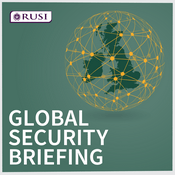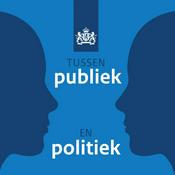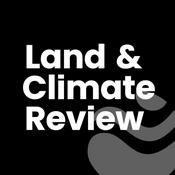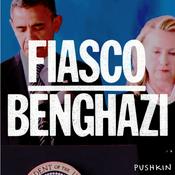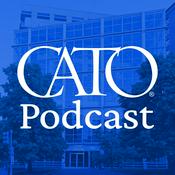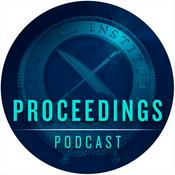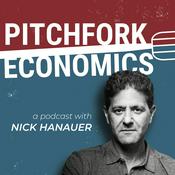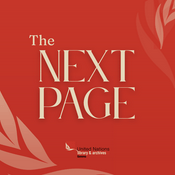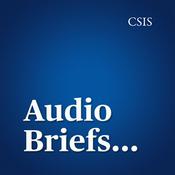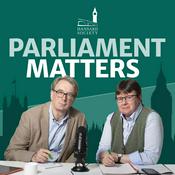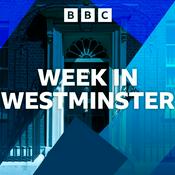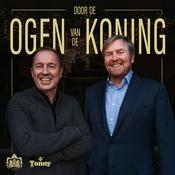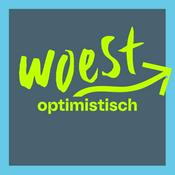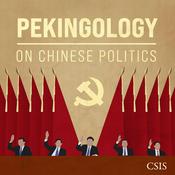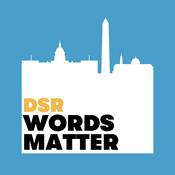681 afleveringen
- Nuclear fusion has held the secret to nearly limitless clean energy since its discovery almost a century ago. Yet scientists around the world, particularly in the United States and China, are only now getting close to making this method of energy generation a reality. Rising US-China competition has further accelerated research and development in this now-critical economic and security technology.
To examine the future of fusion and its geopolitical implications, Hudson will host a two-part event. The first expert panel will focus on fusion and its relationship to the US nuclear deterrent. The second panel will examine how supply chains and the US industrial base can best facilitate fusion deployment. Assistant Secretary of War Michael Cadenazzi on Rebooting America’s Defense Industrial Base
12-2-2026 | 1 u. 4 Min.The first Trump administration warned Americans that depending on foreign manufacturing had eroded the United States’ industrial base over the previous 30 years. Both parties now recognize the danger of US supply chains relying on China—a dependence that includes common consumer goods and extends to critical inputs for US military systems. Fortunately, the second Trump administration is continuing to rebuild the US defense industrial base and restore American manufacturing. The Department of War is a primary driver of this effort.
Join Hudson for a conversation with Assistant Secretary of War for Industrial Base Policy Michael Cadenazzi, who leads the DoW’s efforts to develop and maintain the US defense industrial base to secure critical national security supply chains. Assistant Secretary Cadenazzi will give remarks on the department’s new initiatives and priorities, then sit down for a fireside chat with Senior Fellow Nadia Schadlow. The event will conclude with audience Q&A.Gen. Pierre Schill on France’s Strategic Vision and Adapting Land Forces for High-Intensity Conflict
11-2-2026 | 57 Min.Hudson welcomes French Army Chief of Staff General Pierre Schill, one of Europe’s most senior military leaders, for a discussion on the evolving strategic environment and the French Army’s transformation in a rapidly changing world.
General Schill will discuss:
How new dynamics are shaping France’s evolving strategic concept and defense posture
The French Army’s role as a global military force, deployed in support of national interests, allied commitments, and international security
How operational experience feeds directly into force adaptation and readiness
The ongoing transformation of land forces, including the integration of emerging technologies and artificial intelligence
The human dimensions of military effectiveness—recruitment, training, leadership development, and cohesion
Additionally, drawing on his most recent book Command : Insight from the French Army, General Schill will reflect on the future of land warfare and commanding by intent, with an emphasis on the importance of trust, initiative, and decentralized decision-making in modern warfare.
This event will conclude with a Q&A session, offering the audience an opportunity to engage with a European and French perspective on the strategic, operational, and human challenges shaping the future of land warfare.- President Donald Trump has opened his second term with several major foreign policy moves: targeted strikes on Iran’s nuclear program, sweeping trade negotiations and tariff regimes, a meeting with Chinese leader Xi Jinping in Busan, and a landmark North Atlantic Treaty Organization summit in The Hague. All these underscore the president’s emphasis on proactive diplomacy, peace talks, and conflict resolution—exemplified by his achievement of an Israel-Hamas ceasefire framework.
The National Security Strategy and National Defense Strategy both outline the administration’s approach of “flexible realism” and prioritize the Western Hemisphere and Indo-Pacific.
In January 2026 alone, the Trump administration has continued its rapid pace of foreign policy with the removal of Venezuelan dictator Nicolás Maduro, a major trade and investment deal with Taiwan, and renewed focus on the emerging Arctic security competition.
Join Senior Fellow Rebeccah Heinrichs and Congressman Pat Fallon (R-TX) for a discussion on the Trump administration’s first year of foreign policy and the risks and opportunities ahead. Davos, the Arctic, and Forging Transatlantic Unity: The Romanian View with Foreign Minister Oana Țoiu
06-2-2026 | 48 Min.Transatlantic relations are seemingly going through a period of recalibration following the World Economic Forum in Davos and amid ongoing talks about the future of Greenlandic security. Across North Atlantic Treaty Organization (NATO) capitals, debates are swirling about the future of Europe’s relationship with the United States.
Yet it remains as true today as it has for decades that a strong Europe is America’s best partner. Now, steadfast allies like Romania have a chance to chart Europe’s course toward a new economic, diplomatic, and military relationship with the US.
To that end, Romanian Foreign Minister Oana Țoiu will visit Washington to participate in the first critical minerals ministerial, convened by Secretary of State Marco Rubio. Please join her as she returns to Hudson for a fireside chat with Center on Europe and Eurasia Director Peter Rough to take stock of the past year and anticipate what might lie ahead.
Meer Overheid podcasts
Trending Overheid -podcasts
Over Hudson Institute Events Podcast
Founded in 1961 by strategist Herman Kahn, Hudson Institute challenges conventional thinking and helps manage strategic transitions through interdisciplinary studies in defense, international relations, economics, energy, technology, culture, and law.
Hudson seeks to guide policymakers and global leaders in government and business through a robust program of publications, conferences, policy briefings, and recommendations.
Podcast websiteLuister naar Hudson Institute Events Podcast, Berlijn. Het verhaal van de muur en vele andere podcasts van over de hele wereld met de radio.net-app
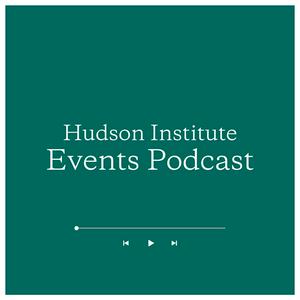
Ontvang de gratis radio.net app
- Zenders en podcasts om te bookmarken
- Streamen via Wi-Fi of Bluetooth
- Ondersteunt Carplay & Android Auto
- Veel andere app-functies
Ontvang de gratis radio.net app
- Zenders en podcasts om te bookmarken
- Streamen via Wi-Fi of Bluetooth
- Ondersteunt Carplay & Android Auto
- Veel andere app-functies


Hudson Institute Events Podcast
Scan de code,
download de app,
luisteren.
download de app,
luisteren.



